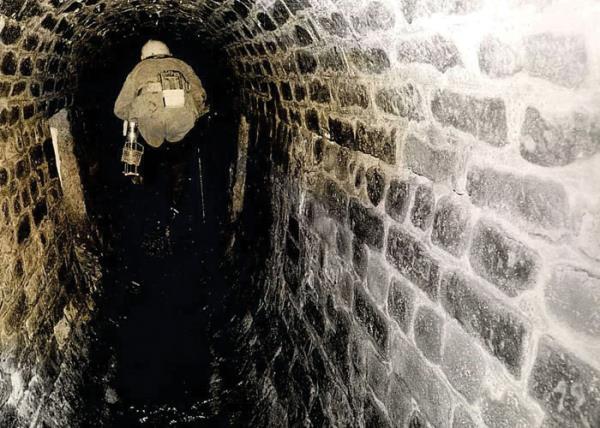28 November 2017

SSE says using Thames Water’s waste network will enable it to roll out fibre networks up to 10 times faster.
Thames Water has agreed to allow SSE Enterprise Telecoms to distribute fibre optic cables throughout its waste water network.
By using Thames Water’s existing infrastructure as part of an ‘operating licence to deploy’ agreement, SSE says it will reduce network installation costs by 60 per cent and implement connectivity services up to 10 times faster than through traditional digs.
Unlike conventional fibre deployments, where cables are laid as shallow as 12 inches under ground, Thames Water’s network sits as deep as 10 metres below street level.
As a result, SSE believes it will be able to establish a more physically secure system that is much less susceptible to tampering, inadvertent outages or accidental fibre breaks.
The deal also allows Thames Water to utilise its existing infrastructure without any disruption to general operations, while meeting EU and UK guidelines and helping to support the UK’s digital strategy.
“Our Victorian sewers are already home to a number of pipes and cables belonging to other utility companies,” says Richard Hill, head of property, Thames Water.
“Reducing roadworks and traffic congestion is something hugely important to us, so it’s great to help a fellow utility company do the same by allowing them to make use of our existing infrastructure.”
SSE says it’s been looking at new ways of providing connectivity following the recent postponement of (BT) Openreach’s Dark Fibre Access (DFA) product which was due to be launched in October.
This was originally proposed by Ofcom in 2016 and would have enabled rival communications providers to pay for only the fibre element of the leased lines from BT, allowing them to attach equipment of their own choosing at either end.
BT complained and took the case to the Competition Appeal Tribunal where it was opposed by Ofcom which was supported by several major operators which included Colt, TalkTalk, Virgin Media, Vodafone, amongst others.
The tribunal upheld BT’s claim that the DFA would discourage service providers from investing in building their own fibre networks. The matter has now gone back to Ofcom for reconsideration.










